ISF Council

Dr. Kathryn (Kathy) Rowan – ISF Chair
Dr Rowan is Director of the Intensive Care National Audit & Research Centre (ICNARC), Honorary Professor at the London School of Hygiene & Tropical Medicine and Adjunct Professor (Research) at Monash University, Australia. In 1994, following her PhD from the University of Oxford, Dr Rowan founded ICNARC, an independent, not-for-profit, scientific organisation to facilitate improvements in the structure, process, outcomes and experiences of critical care – for patients and for those who care for them. ICNARC manages a broad programme of clinical audit and clinical/health services research, nationally and internationally. Dr Rowan was awarded the Humphry Davy Medal by the UK Royal College of Anaesthetists (2004), completed a Harkness Fellowship (2005), received the President’s Prize and honorary life membership of the UK Intensive Care Society (2019) and was awarded Officer of the Most Excellent Order of the British Empire (OBE, Queen’s Birthday Honours’ List 2021) for services to research and intensive care.

Dr. Adrienne G. Randolph – Immediate ISF Past Chair and Secretary
Dr. Randolph is Professor of Anaesthesia and Pediatrics at Harvard Medical School and a Senior Associate in Critical Care Medicine at Boston Children’s Hospital in Massachusetts, USA . She has been an attending physician in the Medical-Surgical pediatric ICU there for over 20 years. Dr. Randolph is the founder and first Chair of the Pediatric Acute Lung Injury and Sepsis Investigator’s (PALISI) Network, a clinical research consortium of over 80 pediatric ICUs in the U.S. and Canada. Dr. Randolph has been a Council member of the International Sepsis Forum since 2011. She is also active in many other professional societies including the Society for Critical Care Medicine, the Society for Pediatric Research and the American Thoracic Society. She is a Fellow of the American Academy of Pediatrics and the American College of Critical Care Medicine and member of the American Pediatric Society. She helped lead the consensus meeting where the 2005 definition of sepsis in infants and children was developed and has coauthored multiple national guidelines on best sepsis diagnosis and management practices for adults and children. She has published numerous multicenter trials and cohort studies in the area of sepsis, acute lung injury and severe pneumonia in children. She has received grants from the National Institutes of Health and the Centers for Disease Control and Prevention to study life-threatening and fatal influenza infection and leads a 40 center Pediatric Critical Care Influenza (PICFLU) Study Group. Her current research is focused on genetic susceptibility and immune response to severe infections and their sequelae in infants, children and adolescents. She also performs clinical-translational research on innate immune suppression and mechanisms underlying viral-bacterial coinfection in severe sepsis with a focus on Staphylococcus aureus toxins.
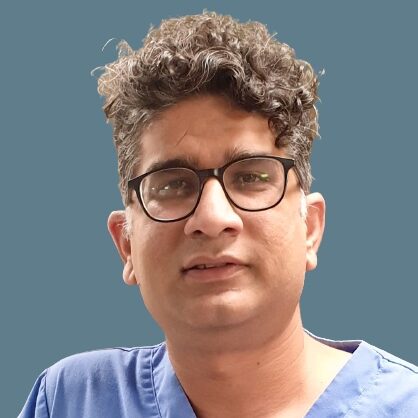
Dr. Diptesh Aryal – ISF Fellow
Diptesh Aryal completed his Clinical Fellowship in Critical Care at the University of Toronto, Interdepartmental Division of Critical Care and St Michael’s Hospital in the year 2014 – 2015. He did MBBS and MD Anesthesiology from Institute of Medicine, Kathmandu. He is Research Physician and Executive Director at Nepal Intensive Care Research Foundation. His career has been devoted to critical care and sepsis research, particularly in low-and middle-income countries. As a co-investigator of the Wellcome Flagship Innovations supported Collaboration for Research Implementation and Training in Asia and Africa (CCAA) project , he has played a pivotal role in establishing cloud-based ICU registries, significantly enhancing research capacity and care quality in low resource settings in Asia. He is the National lead for Nepal ICU Registry. Diptesh has been awarded an Honorary Physician position in Critical Care at the Mahidol Oxford Tropical Medicine Research Unit (MORU), Bangkok. He is Principal Investigator for REMAP-CAP and MEGA-ROX clinical trials in Nepal. Diptesh is also pursuing a PhD from the D’Or Institute for Research and Education, Rio de Janeiro, Brazil. He is a member of WHO International Trial Steering Committee for COVID Oxygen Clinical Trial (O2CoV2).
Publication at ORCID : https://orcid.org/0000-0002-1431-8293
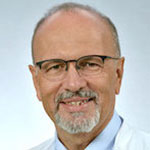
Dr. Michael Bauer
Michael Bauer is professor and chair for Anesthesiology and Critical Care Medicine as well as spokesman of the Integrated Research and Treatment Center for Sepsis Control and Care (CSCC) at Jena University Hospital.
He worked as a post-doc at Johns Hopkins University, Baltimore and as visiting professor at University of North Carolina (UNCC) addressing molecular mechanisms of organ failure. He serves in the board of directors in research programs by the German Research Foundation (DFG) and the Federal Ministry of Education and Research (BMBF), such as the “Cluster of Excellence: Balance of the Microverse”, “PolyTarget” or “InfectoGnostics” and was part of the task force to redefine sepsis (“Sepsis-3”).
His areas of research interest is on (i) mechanisms of multi-organ failure, especially the role of kinases and other signaling events; (ii) nanomedical strategies for targeted delivery of kinase inhibitors and siRNAs as well as (iii) heme and its degradation products in sepsis and organ failure. There is a strong translational emphasis to his research activities, with development of novel diagnostics and therapeutics, e.g. leading to a spinoff company “SmartDyeLivery” developing dye-functionalized nanoparticles for hepatocellular delivery of kinase inhibitors. Research funding comes from theGerman Research Foundation (DFG) and the Federal Ministry of Education and Research (BMBF), the European Commission, and from industrial links.

Dr. Carolyn Calfee
Carolyn S. Calfee, MD MAS is Professor of Medicine and Anesthesia at the University of California, San Francisco, where she attends in the intensive care units. She received her medical degree from University of Pennsylvania and completed her residency, chief residency, and fellowship at University of California, San Francisco. Her primary academic focus is the pathogenesis and treatment of the acute respiratory distress syndrome (ARDS), with special interest in molecular phenotypes and precision medicine in critical care, the role of environmental exposures in acute lung injury, and novel treatments for ARDS and sepsis.
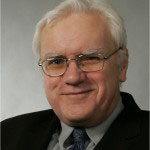
Dr. John Marshall – ISF Past Chair
Professor of surgery at the University of Toronto and attending surgeon at the Toronto General Hospital, University Health Network. He is also a practicing intensivist who serves as Director of Research Inter-departmental Division of Critical Care Medicine, University of Toronto. He received his MD from the University of Toronto and his fellowship in general surgery at Dalhousie University. Subsequent to this, he pursued a fellowship in critical care and surgical immunobiology at McGill University.
He has authored more than 150 peer-reviewed papers and textbook chapters. He is formerly editor in chief of the journal Sepsis and serves on the editorial boards of Critical Care, Current Opinion in Critical Care, and Shock. He is a member of a number of professional societies in surgery, critical care medicine, and the basic science of inflammation. He is councilor of the Shock Society, and a member of the executive board of the Canadian Critical Care Trials Group.
Dr Marshall’s research interests include the basic and clinical biology of inflammation and the mechanisms of its resolution through programmed cell death, as well as the epidemiology and natural history of sepsis and the multiple organ dysfunction syndrome. He has been an active basic and clinical investigator in these areas and has lectured widely on inflammation and its role in the pathogenesis of the morbidity of critical illness.

Dr. Tom van der Poll – ISF Past Chair
Professor of Medicine and Chair of the Department of Medicine in the Amsterdam University Medical Centers, University of Amsterdam, the Netherlands. Van der Poll is board certified in Internal Medicine and Infectious Diseases. His training included a postdoctoral research fellowship in Cornell University Medical College in New York (1993-1995). Van der Poll’s research focuses on pneumonia and sepsis, particularly on pathogenesis, the host response and biomarkers. He published > 1000 articles on this topic. Van der Poll has served as a member of Data Safety and Clinical Monitoring Boards of many pivotal phase III sepsis and pneumonia trials evaluating immunomodulatory agents. In 2019 is was elected as member of the Royal Netherlands Academy of Arts and Sciences (membership for life for best Dutch scientists from all fields).

Dr. Christopher Seymour
Dr. Seymour is Associate Professor of Critical Care and Emergency Medicine at the University of Pittsburgh School of Medicine. He is core faculty member in the Clinical Research, Investigation, and Systems Modeling of Acute Illness (CRISMA) Center in the Department of Critical Care. Dr. Seymour received his medical degree from the University of Pennsylvania before completing his internship and residency in Internal Medicine at the Hospital of the University of Pennsylvania. He then completed a fellowship in Pulmonary and Critical Care Medicine at the University of Washington, where he obtained master’s degree in clinical epidemiology at the University of Washington, School of Public Health. Dr. Seymour’s research program focuses on the development of early diagnostic and prognostic models to facilitate treatments for those with acute illness, particularly during prehospital and emergency care. His current NIH/NIGMS funded research (K23, R35), seeks to identify sepsis endotypes to target treatment in the emergency department. He spends his clinical time attending the Medical Intensive Care Unit at UPMC-Mercy Hospital.

Dr. Manu Shankar-Hari
Chair of Translational Critical Care Medicine and Principal Investigator at Centre for Inflammation Research, The University of Edinburgh.
Manu offers broad translational research skills. Manu’s translational research is deeply influenced by CA Janeway’s work on lymphocyte receptor diversity, and G Rose’s conceptual arguments entitled ‘Sick individuals and sick populations’. His research focus in on precision immunomodulation in critically ill patients.
Please see webpage for additional information on Prof Shankar-Hari’s research – https://www.ed.ac.uk/inflammation-research/people/principal-investigators/professor-manu-shankar-hari

Dr. Kristina Rudd
Dr. Kristina Rudd is an Assistant Professor in the Department of Critical Care Medicine at the University of Pittsburgh. She is a graduate of the University of Washington School of Medicine, where she also completed her Internal Medicine residency and Pulmonary & Critical Care Medicine fellowship training, post-doctoral research fellowship, and MPH in Epidemiology. She is core faculty in the University of Pittsburgh’s Clinical Research, Investigation, and Systems Modeling of Acute Illness (CRISMA) Center, and practices clinically at the UPMC Magee-Women’s Hospital. Her NIH-funded research program focuses on global sepsis epidemiology, with a special focus on resource-variable settings. Her research on sepsis epidemiology and on methods to identify sepsis patients has been published in JAMA and The Lancet. Her current work investigates the spatially-patterned, syndemic relationships between social and biologic features that impact an individual’s risk for developing or dying from sepsis. Dr. Rudd also studies the clinical management of patients with sepsis, hemorrhage, acute kidney injury, traumatic brain injury, and other critical illnesses in resource-variable settings. She has collaborated on research in Uganda, Rwanda, Kenya, and Thailand.

Dr. W. Joost Wiersinga – ISF Chair Elect and Treasurer
Professor of Medicine, Head, Division of Infectious Diseases, Department of Medicine, Amsterdam UMC, location Academic Medical Center, University of Amsterdam, the Netherlands. He received his medical training at the University of Amsterdam with additional courses at the Mayo Clinic (Rochester, Minnesota) and the National Institutes of Health (NIH, Bethesda, MD). Recently he completed his MBA in Healthcare from the triple-crown accredited Amsterdam Business School.
Wiersinga chaired the infection group of the Surviving Sepsis campaign international guidelines for management of sepsis and septic shock 2021 in addition to the Dutch national SWAB antibiotic treatment guidelines on both sepsis and pneumonia. He initiated the European Sepsis Academy and currently chairs the ESCMID Study Group for Bloodstream Infections, Endocarditis and Sepsis (ESGBIES).
Dr. Wiersinga received his PhD thesis entitled “On Toll-like receptors and the innate immune response in melioidosis”, cum laude, from the University of Amsterdam. During this period he worked in Bangkok at the Wellcome Trust Overseas Programme (supervisor professor Sharon Peacock). The focus of his Translational infectious diseases research group is on host-pathogen interactions and innate immune responses in sepsis with a special interest in pneumonia, cellulitis and melioidosis as well as optimization of antibiotic therapy. Recent interests include the role of the gut microbiota during sepsis and COVID-19.
Dr. Wiersinga divides his time between patient care, teaching and research in the Center for Experimental Molecular Medicine (CEMM) all at the Amsterdam UMC, Academic Medical Center, Amsterdam.. He receives grants from among others the Netherlands Organisation for Health Research and Development (ZonMw, Vidi-grant) and the European Union. His work has been published in among others JAMA, Gut, Cell Host Microbe, Nat Rev Microbiol, Lancet Infect Dis, Intensive Care Med and New England Journal of Medicine. Previous awards included the O’Callaghan PhD award, the Andreas Bonn medallion, the GSK ICAAC award, the ESCMID Young Investigator Award and the ANZICS Global Rising Star Award 2015.

Dr. W. Joost Wiersinga – ISF Chair Elect and Treasurer
Professor of Medicine, Head, Division of Infectious Diseases, Department of Medicine, Amsterdam UMC, location Academic Medical Center, University of Amsterdam, the Netherlands. He received his medical training at the University of Amsterdam with additional courses at the Mayo Clinic (Rochester, Minnesota) and the National Institutes of Health (NIH, Bethesda, MD). Recently he completed his MBA in Healthcare from the triple-crown accredited Amsterdam Business School.
Wiersinga chaired the infection group of the Surviving Sepsis campaign international guidelines for management of sepsis and septic shock 2021 in addition to the Dutch national SWAB antibiotic treatment guidelines on both sepsis and pneumonia. He initiated the European Sepsis Academy and currently chairs the ESCMID Study Group for Bloodstream Infections, Endocarditis and Sepsis (ESGBIES).
Dr. Wiersinga received his PhD thesis entitled “On Toll-like receptors and the innate immune response in melioidosis”, cum laude, from the University of Amsterdam. During this period he worked in Bangkok at the Wellcome Trust Overseas Programme (supervisor professor Sharon Peacock). The focus of his Translational infectious diseases research group is on host-pathogen interactions and innate immune responses in sepsis with a special interest in pneumonia, cellulitis and melioidosis as well as optimization of antibiotic therapy. Recent interests include the role of the gut microbiota during sepsis and COVID-19.
Dr. Wiersinga divides his time between patient care, teaching and research in the Center for Experimental Molecular Medicine (CEMM) all at the Amsterdam UMC, Academic Medical Center, Amsterdam.. He receives grants from among others the Netherlands Organisation for Health Research and Development (ZonMw, Vidi-grant) and the European Union. His work has been published in among others JAMA, Gut, Cell Host Microbe, Nat Rev Microbiol, Lancet Infect Dis, Intensive Care Med and New England Journal of Medicine. Previous awards included the O’Callaghan PhD award, the Andreas Bonn medallion, the GSK ICAAC award, the ESCMID Young Investigator Award and the ANZICS Global Rising Star Award 2015.
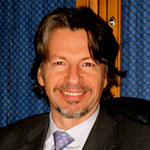
Dr Derek Angus – ISF Past Chair
Professor and Vice Chair of Research in the Department of Critical Care Medicine with secondary appointments in Medicine and Health Policy and Management, and Director of the CRISMA (Clinical Research, Investigation, and Systems Modeling of Acute Illness) Laboratory at the University of Pittsburgh in Pittsburgh, Pennsylvania. He earned his medical degree and completed his residency training in Internal Medicine at the University of Glasgow in Glasgow, United Kingdom. Subsequently, he completed his Fellowship in Critical Care Medicine, combined with a Masters in Public Health degree at the University of Pittsburgh.
Dr Angus is a Fellow of the Royal College of Physicians and is a Fellow of the American College of Chest Physicians and the American College of Critical Care Medicine. He specializes in the epidemiologic, economic and health services research aspects of critical illness and ICU organization and delivery. He has studied the development and application of cost-effectiveness analysis in critical care, the capability and impact of alternative ICU organizational models, traditional and novel ICU risk prediction tools, and the incidence, cost and short- and long-term outcomes of critical illnesses such as sepsis and respiratory failure.
Dr Angus has attracted considerable research funding for these studies, authored or co-authored more than 350 publications, including more than 90 peer-reviewed articles, and lectured at scientific congresses nationally and internationally. Dr. Angus is currently leading three large NIH multicenter studies in the critically ill-GenIMS (Genetic and Inflammatory Markers of Sepsis), EA-PAC (Economic Analysis of the Pulmonary Artery Catheter), and ProNOx (Prolonged Outcomes in Neonatal Respiratory Failure after Nitric Oxide)

Dr. Kenneth Baillie
Kenneth Baillie graduated from the University of Edinburgh with a BSc(Hons) in Physiology in 1999 and MBChB in 2002. He completed basic training in medicine in Glasgow, and in anesthesia in Edinburgh. During this time he led a series of high altitude research projects in Bolivia, and founded a high-altitude research charity, Apex. He was appointed as a clinical lecturer on the ECAT (Edinburgh Clinical Academic Track) at the University of Edinburgh in 2008, and completed a Wellcome Trust-funded PhD in statistical genetics in 2012. He was awarded a Wellcome-Beit Prize Intermediate Clinical Fellowship in 2013. He led a global consensus on harmonisation of research studies in outbreaks for the International Severe Acute Respiratory Infection Consortium (ISARIC), and worked with WHO on H1N1 influenza, MERS, and Ebola. After completing clinical training in 2014 he worked as a visiting scientist at the Broad Institute of Harvard and MIT, before returning to the Roslin Institute, University of Edinburgh to establish a research program in translational applications of genomics in critical care medicine. He works as a consultant in the intensive care unit at the Royal Infirmary, Edinburgh. During the Covid outbreak in 2020-21, he led the UK-wide GenOMICC and ISARIC4C studies, and contributed to the design and delivery of the RECOVERY trial. He discovered new biological mechanisms underlying critical illness in Covid, and contributed to the discovery of effective drug treatments to reduce mortality.

Dr. Thierry Calandra – ISF Past Chair
Thierry Calandra is Professor of medicine and works in the Service of Immunology and Allergy, and Center for Human Immunology Lausanne, Lausanne University Hospital, University of Lausanne, Lausanne, Switzerland. He received his MD degree from the University of Lausanne, Switzerland and his PhD degree from the University of Utrecht, The Netherlands. He is board certified in infectious diseases and internal medicine.
Thierry is a member of Swiss Academy of Medical Sciences and an honorary life member of the Australasian Society for infectious Diseases. He is serving or has served on the Research Council of the Swiss National Science Foundation, on Program Committees for annual meeting of the European Society of Clinical Microbiology and Infectious Diseases (ESCMID) and of the Interscience Conference on Antimicrobial Agents and Chemotherapy (ICAAC) of the American Society for Microbiology. He is a Past-president or a Past-chair of the Swiss Society for Infectious Diseases, the Infectious Diseases Group of the European Organization for Research and Treatment of Cancer (EORTC), the International Immunocompromised Host Society (ICHS) and the Fungal Infection Network of Switzerland. He also is a former member of the Steering Committee of the Mycoses Study Group (MSG) and a member of the Council of the International Sepsis Forum since 1999.
In 2017, Thierry received the prestigious Award for Excellence in Clinical Microbiology and Infectious Diseases of the European Society of Microbiology and Infectious Diseases (ESCMID), an award that recognizes and rewards an outstanding lifetime contribution in the areas of science, education or professional affairs in clinical microbiology and/or infectious diseases. He also is recipient of the Cloëtta Prize awarded by the Max Cloëtta Foundation for distinguished achievements in medical research. Other honors and awards include research awards from the Swiss National Science Foundation, the Leenaards Foundation, the Swiss Society of Infectious Diseases and the Jürg Tschopp Prize for Life Sciences of the University of Lausanne.
Thierry’s research interests focuses on innate immunity, sepsis, bacterial and fungal infections in critically ill patients and in immunocompromised hosts. Thierry has published close to 300 monographs, book chapters and peer-reviewed articles, which appeared in prestigious biomedical journals such as Nature, Nature Medicine, Nature Reviews Immunology, The New England Journal of Medicine, The Lancet, The Proceedings of the National Academy of Sciences, The Journal of the American Medical Association, The Journal of Experimental Medicine and Clinical Infectious Diseases.
Thierry is a member of many national and international societies, including the Swiss Society for Infectious Diseases, the European Society of Clinical Microbiology and Infectious Diseases, the European Society of Intensive Care Medicine, the European Organization for Research and Treatment of Cancer, the Infectious Diseases Society of America, the American Society for Microbiology, the International Endotoxin and Innate Immunity Society, the International Immunocompromised Host and the Mycoses Study Group Education and Research Consortium
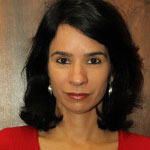
Dr. Flavia Machado
Dr. Flavia Machado is professor of Intensive Care at the Federal University of São Paulo in São Paulo, Brazil. She is head of the Intensive Care Session of Anesthesiology, Pain and Intensive Care Department in this institution. Machado is board certified in internal medicine, infectious diseases and critical care.
She received her MD from the Federal University of Minas Gerais (UFMG) and her residence training in internal medicine at the Medical Sciences University in Belo Horizonte, and also a Masters in Infectious Diseases. Subsequently, she completed her fellowship in Infectious Diseases as well as Critical Care training and a PHD degree at the University of São Paulo.
Dr. Machado is one of the founders of the Latin America Sepsis Institute – LASI. She has the president between 2008-2011 and vice president between 2012-2015. She is currently its CEO. LASI is devoted to quality improvement process in Brazilian hospitals as well as to coordinate multicenter studies in sepsis field.
She is part of the executive board of the Global Sepsis Alliance as well as the executive committee for the World Sepsis Day. She serves on the 2012 and 2016 of the Surviving Sepsis Campaign International Guidelines. She is also member of the Executive Committee and the Scientific Committee of the Brazilian Research in Intensive Care Network – BRICNET. She is also a member (founder) of the Latin America Intensive Care Network (LIVEN). She is the scientific director for the Associação de Medicina Intensiva Brasileira – AMIB (2018-2019).
Flavia is well published in the fields of sepsis and hemodynamics. Her research focuses primarily on improving the care and outcomes of critically ill patients with sepsis as well as on quality improvement process. She lectured at scientific congresses nationally and internationally and is also an author or co-author of numerous invited book chapters as well as editor of critical care books. She has received multiple grants from the Sao Paulo State Research Foundation. Dr Machado is a member of many medical societies, including the Brazilian Critical Care Society, the Society of Critical Care Medicine and the European Society of Critical Care Medicine. Dr. Machado is the former editor-in-chief of “Revista Brasileira de Terapia Intensiva”, the official journal of the Brazilian Critical Care Association and the Portuguese Critical Care Association (2010 to 2015).
She integrates the International Sepsis Forum (ISF) council since 2014.

Dr. Peter Pickkers
Dr. Peter Pickkers is a full Professor of Intensive Care Medicine at the Radboud University Medical Center Nijmegen, the Netherlands. He qualified as MD and completed his residency in internal and intensive care medicine in Nijmegen. In 2000 he received his PhD-doctorate cum laude.
His research focuses on pharmacological modulation of the innate immune response in translational models and sepsis patients, and the consequences for organ function, with a focus on the kidney and brain. Up to 2023, he co-authored over 500 articles, over 30 book chapters, and 35 PhD projects were completed under his supervision.
As head of the ICU research department, Prof. Pickkers leads one of the most active group using the human in vivo model of inflammation worldwide, with over 2000 human endotoxemia experiments performed up to now.
He has given invited lectures at all major meetings in the field of intensive care medicine and nephrology. He cooperates with various international experts in the field of sepsis and nephrology and has participated in several guideline and steering committees. He was/is in the editorial board of Intensive Care Medicine, Intensive Care Medicine Experimental and Shock. Currently, he is the editor-in-chief of the Netherlands Journal of Critical Care. He is co-founder and chair of SepsisNet, a national organization to improve awareness of sepsis and co-founder and executive board member of the Research Collaboration in Critical Care in the Netherlands (RCCNet).

Dr. Hallie Prescott
Dr. Hallie Prescott is an Associate Professor of Medicine at the University of Michigan and a Core Investigator at the VA Center for Clinical Management Research. She is board-certified in internal medicine, critical care medicine, and pulmonary medicine, and practices clinically at the University of Michigan Health System and the Ann Arbor Veterans Affairs Hospital. She is holder of the Carol Kauffman MD Department of Medicine Early Career Endowment Award 2019-2024.
Dr. Prescott is an internationally-recognized expert in long-term outcomes and recovery from sepsis, and her research has been published in leading journals such as JAMA, BMJ, and AJRCCM. The overarching goal of her research program has been to improve the management and outcomes of sepsis survivors across the continuum of care—including pre-hospital, hospital, and post-discharge care—and mitigating survivors’ risk for preventable medical deterioration. She has published expert recommendations on enhancing recovery from sepsis (JAMA, 2018) and co-chaired the 2018 ISF Colloquium “Understanding and Enhancing Sepsis Survivorship” (AJRCCM, 2019). Her research program has been funded by US National Institutes of Health, US Agency for Healthcare Research and Quality, America Thoracic Society Foundation, and US Department of Veterans Affairs. She serves as a vice-chair for the Surviving Sepsis Campaign Guidelines and leads a Michigan state-wide sepsis quality improvement consortium with over 70 participating hospitals.

Dr. Nathan Shapiro
Nathan. I Shapiro, MD, MPH is a Professor of Emergency Medicine at Harvard Medical School and Vice-Chairman of Emergency Medicine Research and a Clinical Attending in the Emergency Department at Beth Israel Deaconess Medical Center in Boston, Massachusetts. Dr. Shapiro received his Medical Degree from Temple University School of Medicine in Philadelphia Pennsylvania, and trained in Emergency Medicine in the Harvard Affiliated Emergency Medicine Residency Training program. He also received a Master’s of Public Health Degree in Clinical Effectiveness Research from the T.C. Chan Harvard School of Public Health. He was recently honored for his outstanding research contributions and achievements by giving the 2018 A.S. Laerdal Memorial Award lecture at the Society of Critical Care Medicine Annual Meeting.
Dr. Shapiro’s research focuses on the diagnosis and treatment of patients with sepsis and septic shock, with a special emphasis on restoring endothelial cell health and microcirculatory flow during sepsis resuscitation. His research heavily incorporates both sepsis biomarker diagnostics as well as non-invasive hemodynamic monitoring techniques to measure both macrocirculatory and microcirculatory flow parameters at the bedside. Dr. Shapiro is also possesses a strong interest in translational research where he is involved in a number of bench-to-bedside collaborations. He is particularly skilled in issues pertaining to sample collection and translational research study design, and he has extensive experience in the practical aspects of implementing studies that recruit from the often-challenging ED and ICU environments.
Dr. Shapiro routinely lectures nationally and internationally, has more than 200 peer reviewed publications, and has received substantial funding over the years from the National Institute of Health, United States Army, the Department of Defense, as well as a number of industry-based grants. Furthermore, Shapiro has led a number of industry sponsored as well as investigator-initiated studies sponsored by industry, inclusive of investigations that have established new FDA indications.

Dr. Mervyn Singer – ISF Past Chair
Mervyn Singer is Professor of Intensive Care Medicine at University College London, UK. He was appointed a UK NIHR (National Institute of Health Research) Senior Investigator in 2009 and has been Editor-in-Chief of Intensive Care Medicine Experimental since 2012. He co-chaired the International Consensus Task Force that developed the new ‘Sepsis-3’ international definitions of sepsis (Singer et al, JAMA 2016) and sat on the recent Surviving Sepsis Campaign Committee. He advises the UK Department of Health and NHS England on sepsis and antimicrobial resistance. He has co-written/co-edited several textbooks including the ‘Oxford Textbook of Critical Care’ (OUP), the ‘Oxford Handbook of Critical Care’ (OUP), ‘Inflammation: From molecular and cellular mechanisms to the clinic’ (Wiley) and Critical Care Clinics – Sepsis (Elsevier). He was awarded Honorary Membership of the European Society of Intensive Care Medicine in 2017.
His areas of research interest in sepsis is on (i) mechanisms of multi-organ failure, especially the roles of mitochondrial dysfunction and myocardial depression; (ii) mechanisms and management of septic shock; (iii) management of infection and infection control and (iv) monitoring of organ perfusion and perfusion adequacy. There is a strong translational emphasis to his studies, with development and trialling of novel therapeutics, diagnostics and monitors. Research funding comes from the UK Medical Research Council, the Wellcome Trust, NIHR, Innovate UK, and the European Commission, and from strong industry links. He has also been Principal Investigator or Co-Investigator for numerous academic and industry-led multi-centre trials in sepsis.
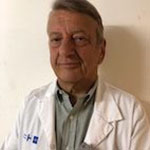
Dr. Jean-Louis Vincent- ISF Past Chair
Professor Vincent is Professor of intensive care medicine at the University of Brussels (Université Libre de Bruxelles) and intensivist in the Department of Intensive Care at Erasme University Hospital in Brussels. He obtained a PhD degree at the University of Brussels.
He is a Past-President of the World Federation of Societies of Intensive and Critical Care Medicine (WFSICCM), the European Society of Intensive Care Medicine (ESICM), the European Shock Society (ESS), the Belgian Society of Intensive Care Medicine (SIZ), and the International Sepsis Forum (ISF). He was a Council member of the Society of Critical Care Medicine (SCCM) for two years. He is member of the Belgian Royal Academy of Medicine.
Prof. Vincent has signed more than 1000 original articles, some 400 book chapters and review articles, 1000 original abstracts, and has edited 112 books. He is co-editor of the “Textbook of Critical Care” (Elsevier Saunders) and the “Encyclopedia of Intensive Care Medicine” (Springer).
He is the editor-in-chief of Critical Care, Current Opinion in Critical Care, and ICU Management & Practice and member of the editorial boards of about 30 other journals, including Critical Care Medicine (senior editor), the American Journal of Respiratory and Critical Care Medicine, PLoS Medicine, The Lancet Respiratory Medicine, The Lancet Regional Health- Europe Intensive Care Medicine, Shock, Journal of Critical Care and, Annals of Intensive Care.
Prof. Vincent has received several awards including the College Medalist Award of the American College of Chest Physicians, the Society Medal (lifetime award) of the European Society of Intensive Care Medicine, the Distinguished Investigator Award, the Lifetime Achievement Award of the Society of Critical Care Medicine, the ERS President Award (European Respiratory Society), and the prestigious Belgian scientific award of the FRS-FNRS (Prix Scientifique Joseph Maisin-Sciences biomédicales cliniques), he was awarded the title of Baron by the King of Belgium.
His name appears more than 1300 times in Pubmed, and his work has been cited more than 230,000 times; his H-index is 193.

Dr. Fernando Zampieri – ISF Fellow
Critical Care physician graduated at University of São Paulo, 2005.
Clinical Researcher at Albert Einstein Academic Research Organization, Albert Einstein Hospital, São Paulo, Brazil.
Assistant Adjunct Professor at University of Alberta, Canada
EMERITUS Members
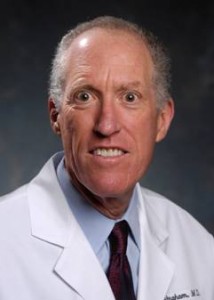
Dr. Edward Abraham – USA
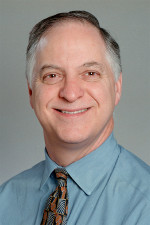
Dr. Gordon Bernard – USA
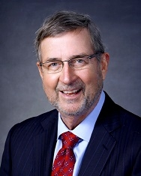
Dr. R. Phillip Dellinger – USA

Dr Simon Finfer – Australia
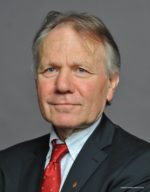
Dr. Konrad Reinhart – Germany
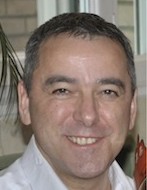
Dr. Jean-Paul Mira – France
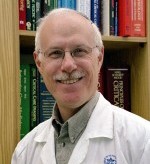
Dr. Charles Sprung – Israel
Fellowships
The ISF Lowry Fink Fellowship, which recognize the immense contributions made by Stephen F. Lowry and Mitchell Fink to advancing the science of sepsis, is closed for 2025-2026 applications.
The Fellowship will offer rising stars, residing and working in low- and middle-income countries, in the field of sepsis the opportunity to promote education, research and to participate in clinical investigations through partnership with industry in a stimulating and supportive environment.
The principle behind the Fellowships it that they will be beneficial to both the Fellow and the ISF. Fellows would gain from interaction with the Council members and from working on activities with the ISF that will contribute to raise their international profile in sepsis. Applicants should be clinicians or scientists mid-career at the time of application, and with a record of accomplishment and proven interest in sepsis

Diptesh Aryal
ISF Lowry Fink Fellow 2024-2025
Diptesh Aryal completed his Clinical Fellowship in Critical Care at the University of Toronto, Interdepartmental Division of Critical Care and St Michael’s Hospital in the year 2014 – 2015. He did MBBS and MD Anesthesiology from Institute of Medicine, Kathmandu. He is Research Physician and Executive Director at Nepal Intensive Care Research Foundation. His career has been devoted to critical care and sepsis research, particularly in low-and middle-income countries. As a co-investigator of the Wellcome Flagship Innovations supported Collaboration for Research Implementation and Training in Asia and Africa (CCAA) project , he has played a pivotal role in establishing cloud-based ICU registries, significantly enhancing research capacity and care quality in low resource settings in Asia. He is the National lead for Nepal ICU Registry. Diptesh has been awarded an Honorary Physician position in Critical Care at the Mahidol Oxford Tropical Medicine Research Unit (MORU), Bangkok. He is Principal Investigator for REMAP-CAP and MEGA-ROX clinical trials in Nepal. Diptesh is also pursuing a PhD from the D’Or Institute for Research and Education, Rio de Janeiro, Brazil. He is a member of WHO International Trial Steering Committee for COVID Oxygen Clinical Trial (O2CoV2).
Publication at ORCID : https://orcid.org/0000-0002-1431-8293

Fernando Zampieri
ISF Lowry Fink Fellow 2020-2023
Critical Care physician graduated at University of São Paulo, 2005.
Clinical Researcher at Albert Einstein Academic Research Organization, Albert Einstein Hospital, São Paulo, Brazil.
Assistant Adjunct Professor at University of Alberta, Canada
ISF Lowry Fink Fellow 2019-2021: Manu Shankar-Hari
ISF Lowry Fink Fellow 2018-2019: Kenneth Baillie
ISF Lowry Fink Fellow 2017-2018: Hallie Prescott
Fellowship Terms of Appointment:
1. Duration: 2 years fixed term, starting January 1.
2. Must be residing and working in a low-or middle-income country
3. Nominating process:
a. Self-nomination
b. Council can propose names
c. Seek names from other persons or groups
4. Election: By majority vote of council
5. Number: 1-2 at any one time
6. Status: Full voting member of Council during the Fellowship
7. Roles and responsibilities:
a. Co-chair a ISF Colloquium
b. Be the lead author on a summary paper arising from the Colloquium, to be submitted as a draft to council, within six months of the meeting
c. Participate in other ISF educational activities such as Sepsis 20XX and meet-the-expert sessions
d. Fellows must contribute to a minimum of one extra activity per year, plus attend one Council meeting per year
8. Financial Support: As per the ISF travel policy for Council members
Applicants should send a brief letter of application (no more than one page), three recommendation letters and a curriculum vitae with a list of publications to Elaine Rinicker, Executive Director ISF, elaine@sepsisforum.org

